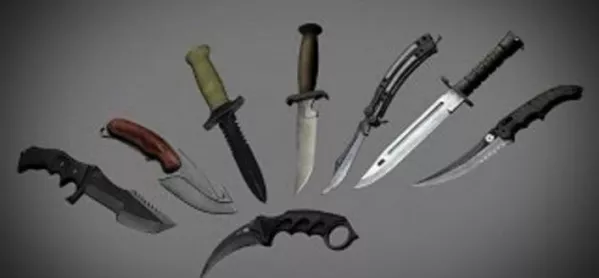- Home
- Need to know: Knife crime and schools
Need to know: Knife crime and schools

Concerns about knife crime and young people are mounting.
A series of fatal stabbings in London over recent months has seen the issue make front page news.
Here is what schools need to know:
What’s behind the violence?
Much of the coverage has been generated by a series of tragedies in London, but also a wider rise in knife crime across the country.
Various factors have been blamed, from cuts to police numbers and the declining use of stop and search, to the county lines drugs trade.
London mayor Sadiq Khan recently said it could take a decade to solve the problem.
What about schools?
According to Sarah Jones, the Labour MPs and chair of the All-Party Parliamentary Group on Knife Crime, “this is a public health crisis and our schools are on the front line.”
Last month her group, together with the children’s charity Barnardo’s, warned that pupils who have been excluded from school may be at serious risk of being sucked into knife crime and gang violence.
Her comments echoed those of Sophie Linden, deputy mayor of London, who said in June that schools have a “vital” role to play in reducing knife crime by driving down exclusions.
What can schools do?
Research published last week found that children’s risk of being stabbed peaks while they were on their way home from school.
The doctors behind the research, published in the journal BMJ Open, called for better educational programmes to cut violence, as well as staggered school closing times and extra police patrols in areas where stabbings happened most often.
They highlighted violence reduction schemes in Glasgow, which have resulted in declines in knife crime.
What powers do schools have?
In January, the DfE published advice for schools on searching, screening and confiscation. It says school staff can search a pupil for any item if the pupil agrees.
Heads, and staff authorised by them, have a statutory power to search pupils or their possessions, without consent, where they have reasonable grounds for suspecting they may have a prohibited item, including knives or weapons.
They can seize any prohibited item found as a result of a search.
The document reassures schools that this does not breach the human rights of their pupils.
It tells schools that they “can require pupils to undergo screening by a walk-through or hand-held metal detector even if they do not suspect them of having a weapon and without the consent of the pupils”, and refuse to allow any who refuse to be screened onto the premises.
What is government doing?
For its part, the Home Office published its Serious Violence Strategy in April.
It cited studies that showed that school-related risk factors for either being perpetrator or victim of serious crime were low school performance, bullying others, truancy and school exclusion.
The strategy says: “The Home Office will work with the Department for Education and Ofsted to explore what more can be done to support schools in England to respond to potential crime risks and to provide additional support to excluded children.”
And in London, the mayor has made knife wands available to every school, with 200 schools so far taking up the offer.
London also has a Stepping Stones programme, which aims to support at-risk young people in their transition from primary to secondary school, which currently operates in 15 schools.
What are police doing?
The policing is devolved to the 43 police forces in England, each of which will have an approach to knife crime and schools tailored to their own local circumstances.
The Met Police, which covered Greater London, say is each borough has Safer Schools Officers who work “in partnership with education providers to keep young people safe, both during and outside of school hours”.
It adds: “A key part of the Safer Schools role is conducting regular patrols around the school environment including weapon sweeps and delivering prevention messages to students.
“Schools officers also work closely with Safer Transport and Safer Neighbourhood Teams to engage with young people and prevent knife crime.”
Keep reading for just £1 per month
You've reached your limit of free articles this month. Subscribe for £1 per month for three months and get:
- Unlimited access to all Tes magazine content
- Exclusive subscriber-only stories
- Award-winning email newsletters



